Connect to TiDB with MySQL Workbench
TiDB is a MySQL-compatible database, and MySQL Workbench is a GUI tool set for MySQL database users.
In this tutorial, you can learn how to connect to your TiDB cluster using MySQL Workbench.
Prerequisites
To complete this tutorial, you need:
- MySQL Workbench 8.0.31 or later versions.
- A TiDB cluster.
If you don't have a TiDB cluster, you can create one as follows:
- (Recommended) Follow Creating a TiDB Cloud Serverless cluster to create your own TiDB Cloud cluster.
- Follow Deploy a local test TiDB cluster or Deploy a production TiDB cluster to create a local cluster.
Connect to TiDB
Connect to your TiDB cluster depending on the TiDB deployment option you have selected.
- TiDB Cloud Serverless
- TiDB Cloud Dedicated
- TiDB Self-Managed
Navigate to the Clusters page, and then click the name of your target cluster to go to its overview page.
Click Connect in the upper-right corner. A connection dialog is displayed.
Ensure the configurations in the connection dialog match your operating environment.
- Connection Type is set to
Public. - Branch is set to
main. - Connect With is set to
MySQL Workbench. - Operating System matches your environment.
- Connection Type is set to
Click Generate Password to create a random password.
Launch MySQL Workbench and click + near the MySQL Connections title.
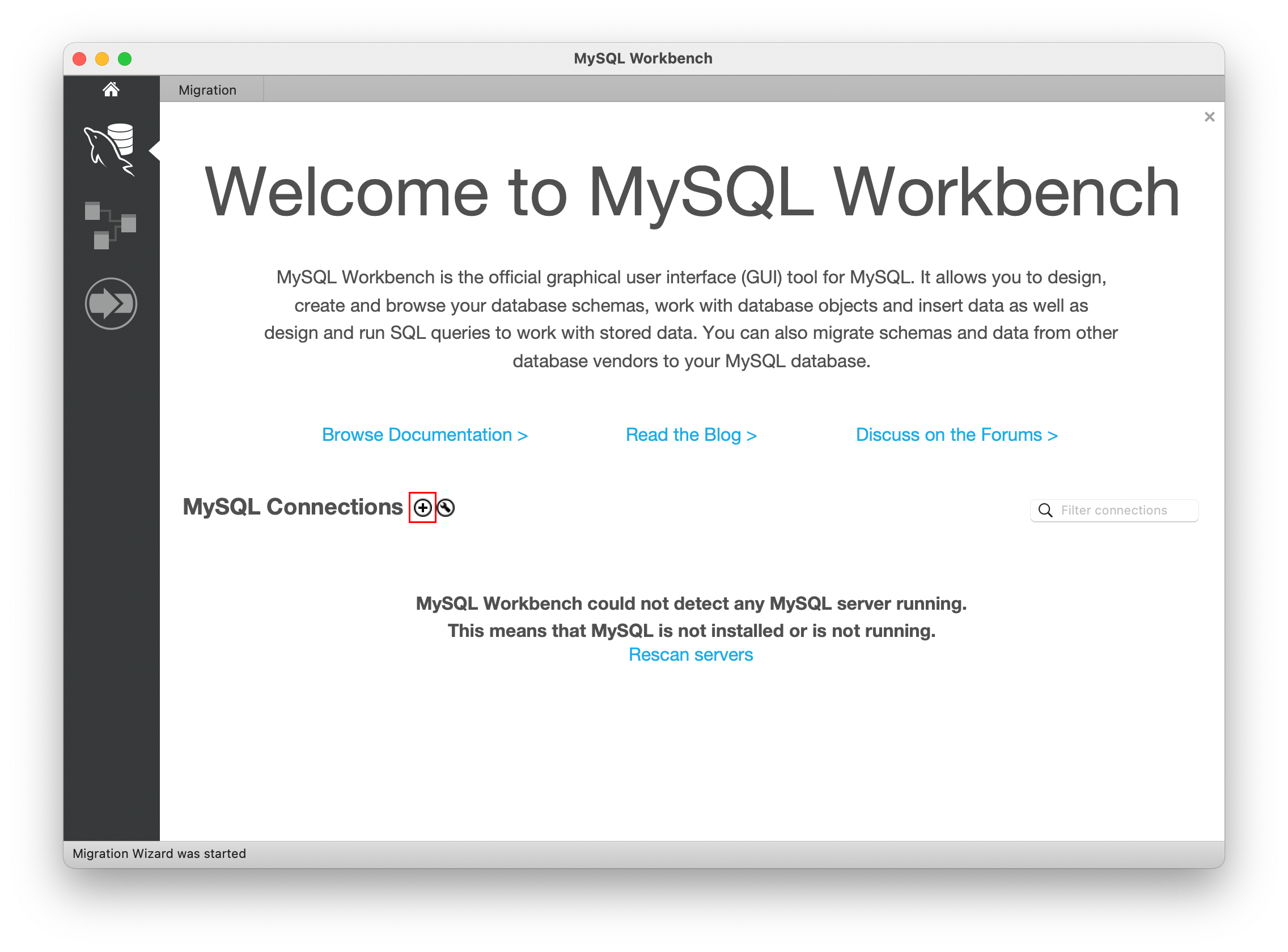
In the Setup New Connection dialog, configure the following connection parameters:
Connection Name: give this connection a meaningful name.
Hostname: enter the
HOSTparameter from the TiDB Cloud connection dialog.Port: enter the
PORTparameter from the TiDB Cloud connection dialog.Username: enter the
USERNAMEparameter from the TiDB Cloud connection dialog.Password: click Store in Keychain ... or Store in Vault, enter the password of the TiDB Cloud Serverless cluster, and then click OK to store the password.
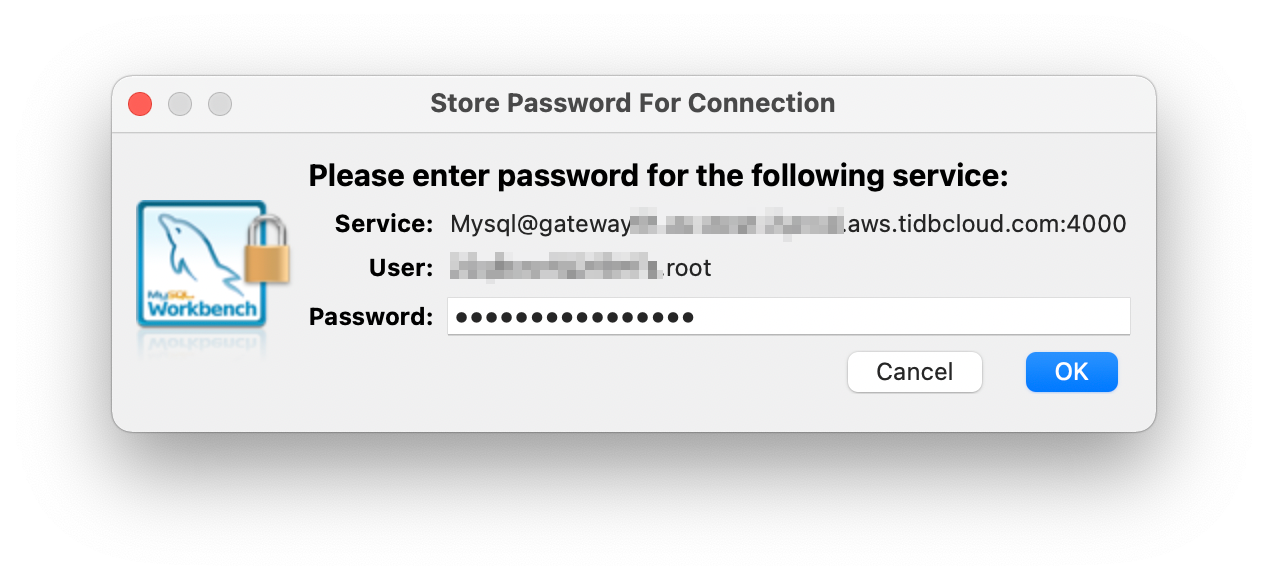
The following figure shows an example of the connection parameters:
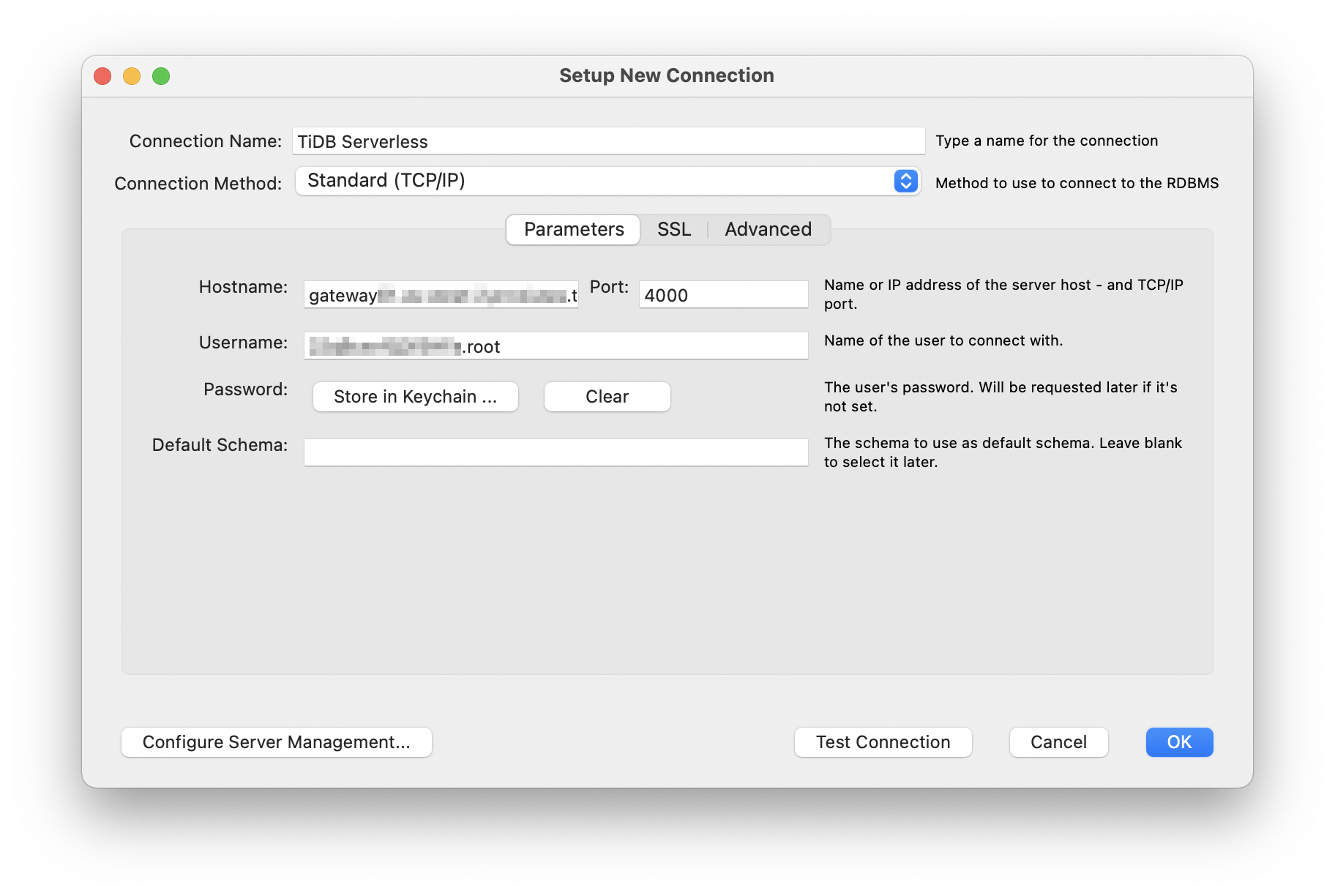
Click Test Connection to validate the connection to the TiDB Cloud Serverless cluster.
If the connection test is successful, you can see the Successfully made the MySQL connection message. Click OK to save the connection configuration.
Navigate to the Clusters page, and then click the name of your target cluster to go to its overview page.
Click Connect in the upper-right corner. A connection dialog is displayed.
In the connection dialog, select Public from the Connection Type drop-down list, and then click CA cert to download the CA certificate.
If you have not configured the IP access list, click Configure IP Access List or follow the steps in Configure an IP Access List to configure it before your first connection.
In addition to the Public connection type, TiDB Dedicated supports Private Endpoint and VPC Peering connection types. For more information, see Connect to Your TiDB Dedicated Cluster.
Launch MySQL Workbench and click + near the MySQL Connections title.

In the Setup New Connection dialog, configure the following connection parameters:
Connection Name: give this connection a meaningful name.
Hostname: enter the
HOSTparameter from the TiDB Cloud connection dialog.Port: enter the
PORTparameter from the TiDB Cloud connection dialog.Username: enter the
USERNAMEparameter from the TiDB Cloud connection dialog.Password: click Store in Keychain ..., enter the password of the TiDB Cloud Dedicated cluster, and then click OK to store the password.
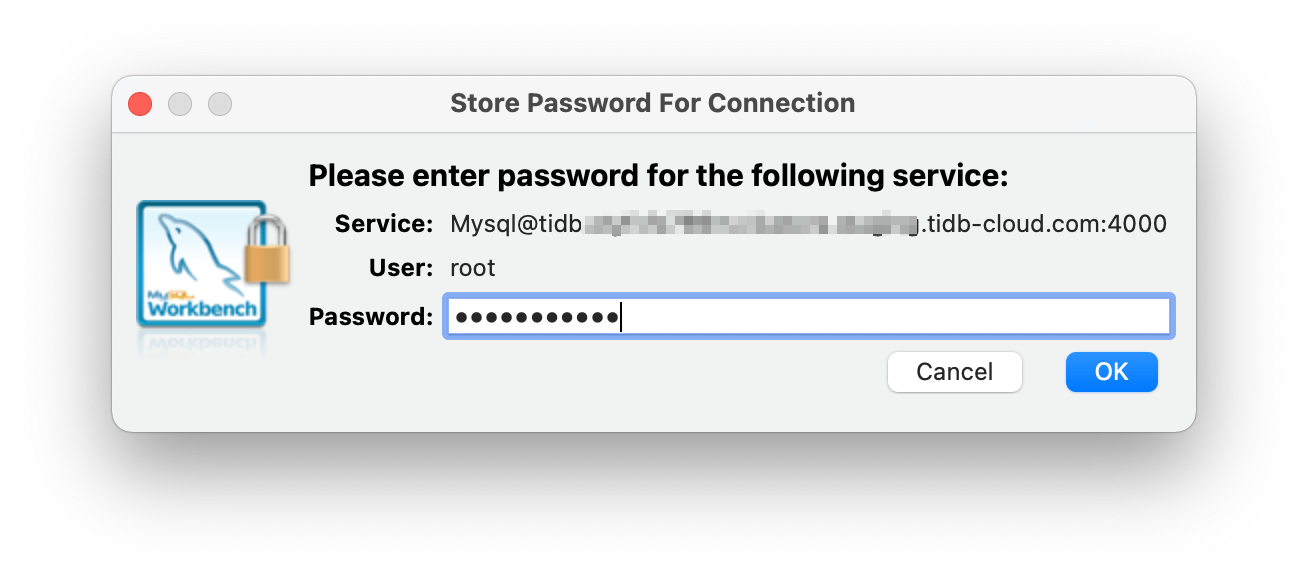
The following figure shows an example of the connection parameters:
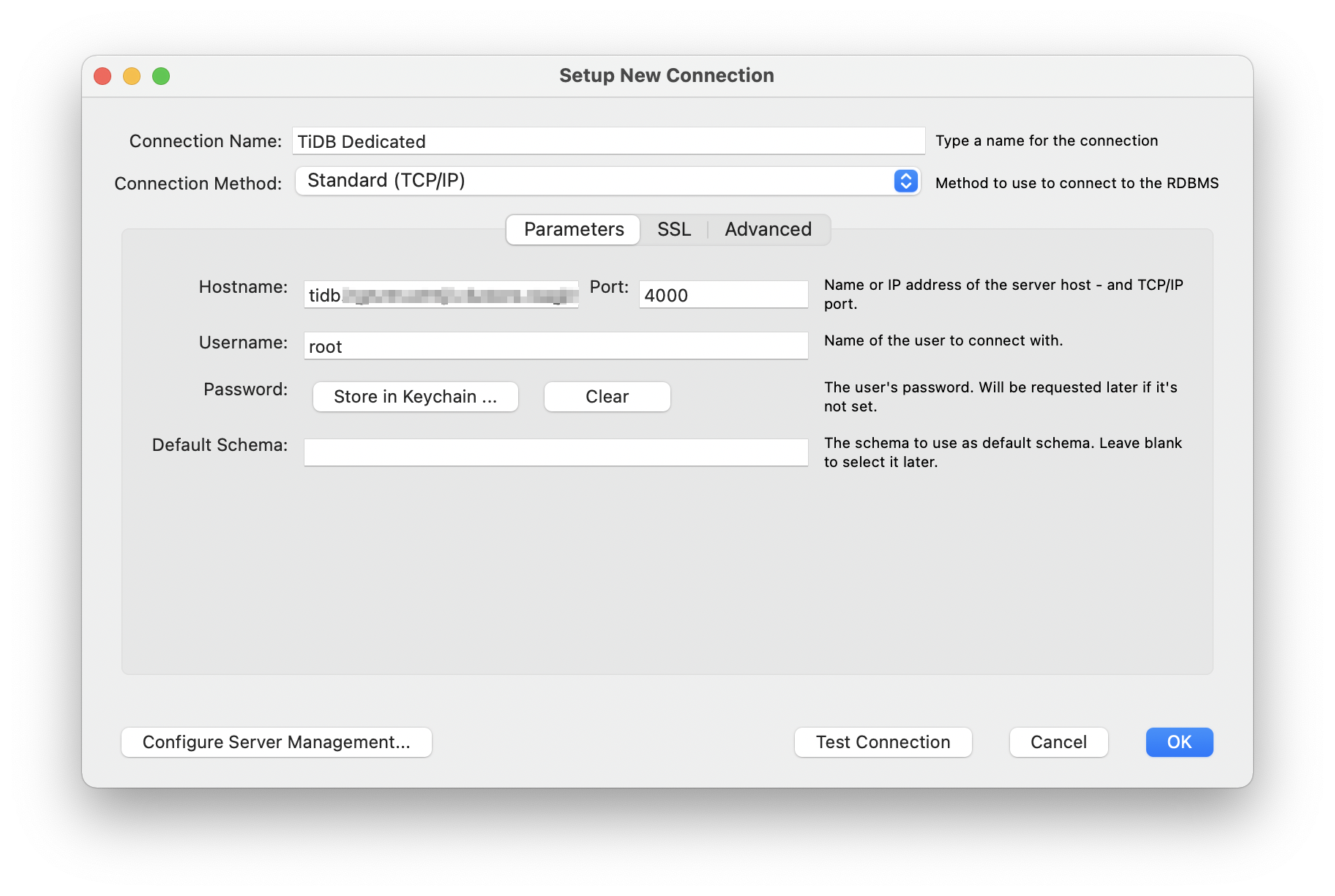
Click Test Connection to validate the connection to the TiDB Cloud Dedicated cluster.
If the connection test is successful, you can see the Successfully made the MySQL connection message. Click OK to save the connection configuration.
Launch MySQL Workbench and click + near the MySQL Connections title.

In the Setup New Connection dialog, configure the following connection parameters:
Connection Name: give this connection a meaningful name.
Hostname: enter the IP address or domain name of your TiDB Self-Managed cluster.
Port: enter the port number of your TiDB Self-Managed cluster.
Username: enter the username to use to connect to your TiDB.
Password: click Store in Keychain ..., enter the password to use to connect to your TiDB cluster, and then click OK to store the password.
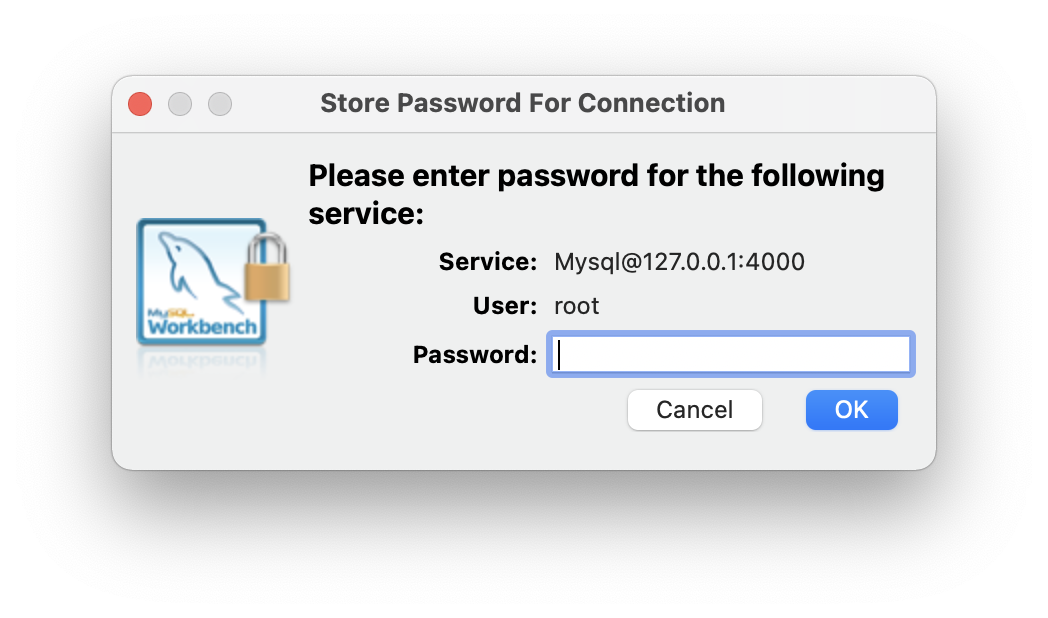
The following figure shows an example of the connection parameters:
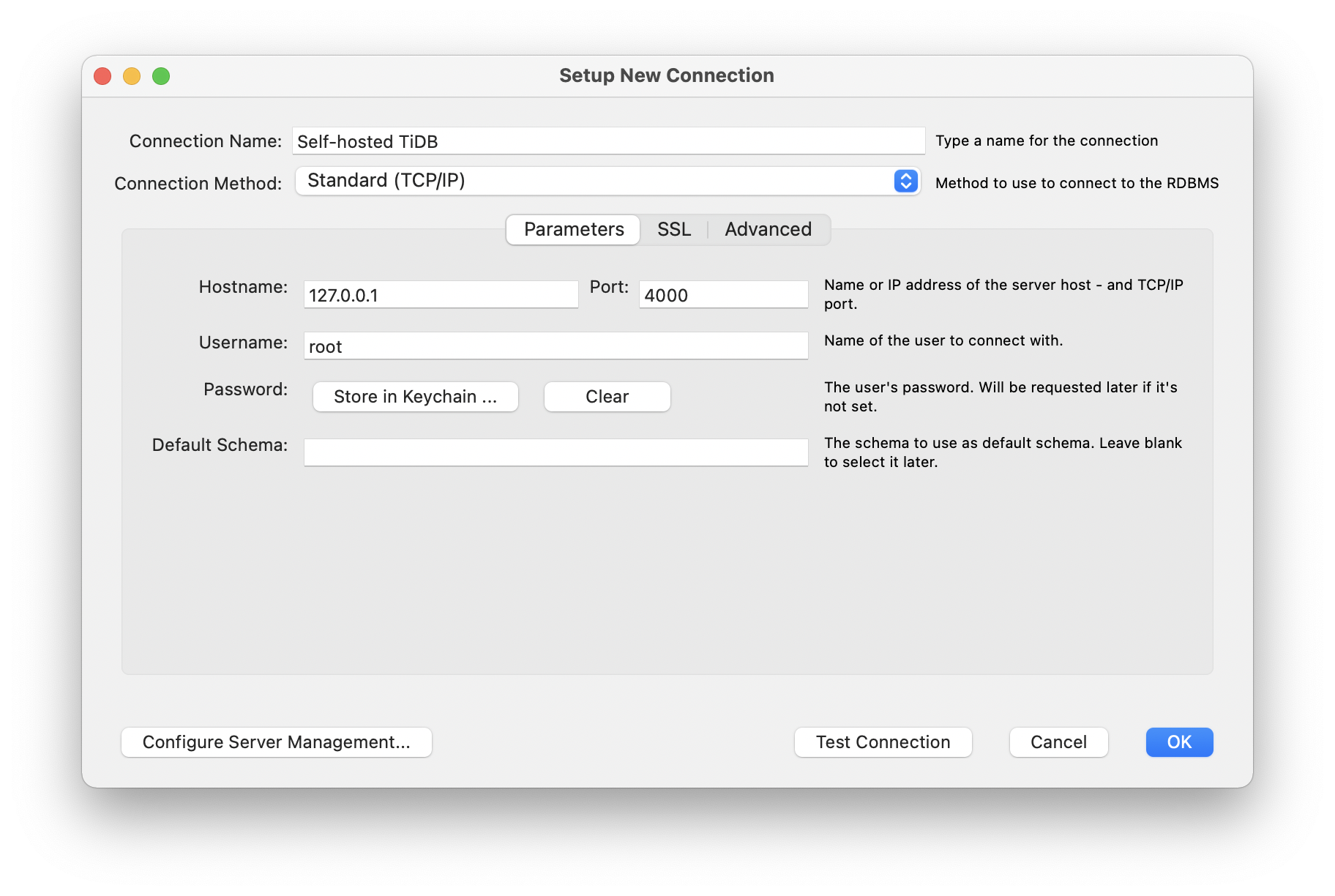
Click Test Connection to validate the connection to the TiDB Self-Managed cluster.
If the connection test is successful, you can see the Successfully made the MySQL connection message. Click OK to save the connection configuration.
FAQs
How to handle the connection timeout error "Error Code: 2013. Lost connection to MySQL server during query"?
This error indicates that the query execution time exceeds the timeout limit. To resolve this issue, you can adjust the timeout settings by the following steps:
Launch MySQL Workbench and navigate to the Workbench Preferences page.
In the SQL Editor > MySQL Session section, configure the DBMS connection read timeout interval (in seconds) option. This sets the maximum amount of time (in seconds) that a query can take before MySQL Workbench disconnects from the server.
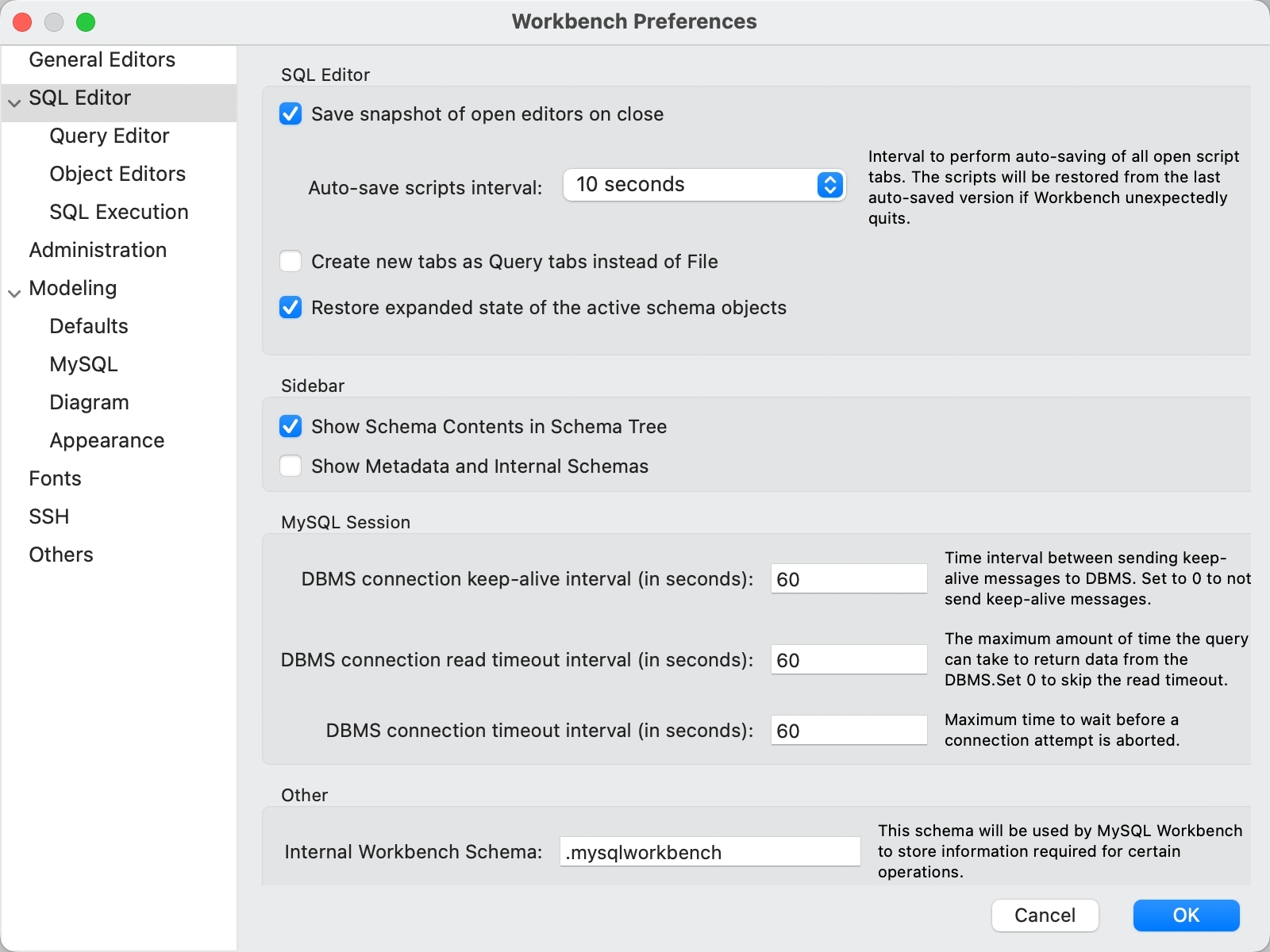
For more information, see MySQL Workbench frequently asked questions.
Next steps
- Learn more usage of MySQL Workbench from the documentation of MySQL Workbench.
- Learn the best practices for TiDB application development with the chapters in the Developer guide, such as Insert data, Update data, Delete data, Single table reading, Transactions, and SQL performance optimization.
- Learn through the professional TiDB developer courses and earn TiDB certifications after passing the exam.
Need help?
Ask the community on Discord or Slack, or submit a support ticket.